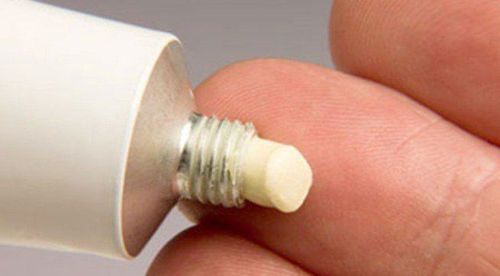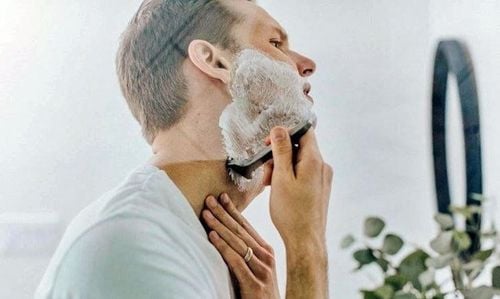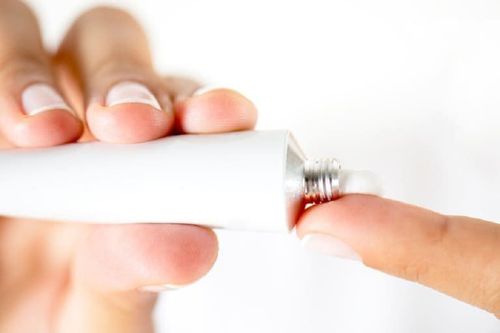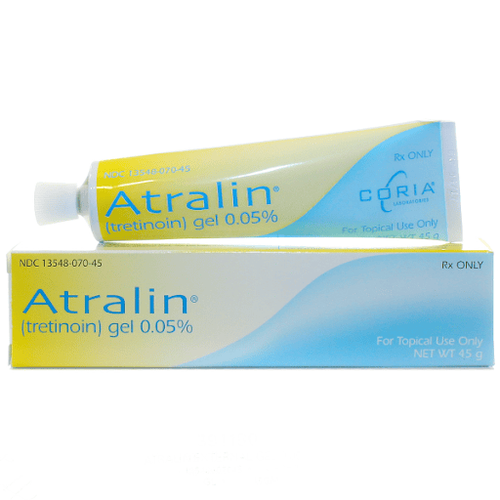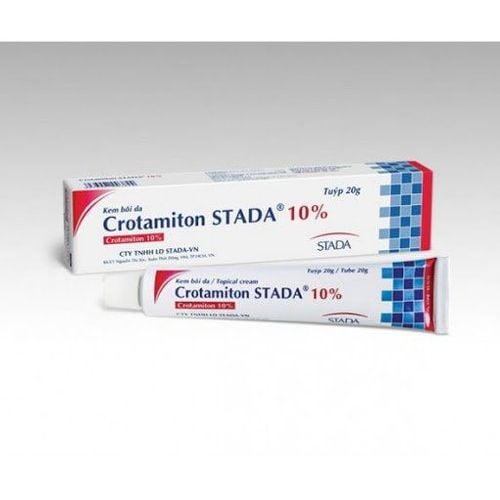This is an automatically translated article.
A vaginal boil is a pus-filled bump that develops when a hair follicle becomes infected. Boils can appear outside the vagina on the labia, vulva, or pubic area. Most vaginal boils clear up on their own in 1-2 weeks, but in some cases medical treatment is needed by a specialist.
1. What is a Vaginal Pimple?
A vaginal boil (also known as a vaginal boil) is a painful, pus-filled bump that develops under the skin in the pubic area. It usually occurs when the bacteria Staphylococcus aureus (commonly known as staph) infects the vesicles that contain the pores and oil glands. Vaginal boils can also develop from a cut in the skin from a razor scraping or other injury. Bacteria will enter the body through a wound in the skin and cause an infection.
Vaginal pimples will become more and more painful and eventually they will burst. Pimples can develop on the labia, in the pubic area (where pubic hair grows), or in the area around the vulva. Some patients also develop pimples in the skin folds in the groin. A boil can start as a small, red bump and develop over a few days into a painful, swollen nodule with a white or yellow pus-filled tip. Some unusual bumps on the skin may look like genital warts, but for an accurate diagnosis, see a gynecologist. Boils rarely cause serious complications. Most patients with genital warts clear up on their own after a week or two. But a small number of cases of genital warts may require medical treatment. Treatment can help relieve pain and reduce infection until the boil is gone. In some severe cases, your doctor may have to cut the boil to drain the infection.
2. What causes pimples in the vagina?
Vaginal acne is usually caused by an infection with staph, a type of bacteria found on the skin and inside the nose. It only causes problems when it gets inside the body. When bacteria enter the damaged skin, a boil is filled with fluid or pus. This is the body's way of trying to get rid of the infection. Some causes of acne in the intimate area include:
Being overweight can cause pimples between the folds of the skin. Poor hygiene. You should wash your genitals with soap and water daily and after exercise. Diabetes or other conditions that weaken the immune system reduce its ability to fight infections. Wear tight clothing, especially dirty or sweaty bras. Ingrown hairs from shaving, brushing, or waxing the vaginal area. Insect bites, skin wounds or acne. Close contact with someone who has a boil.

Thừa cân béo phì có thể là nguyên do gây mọc mụn ở vùng kín
3. How to treat vaginal pimples at home?
Most boils will go away on their own after a few days or weeks. You can help ease symptoms and speed up the healing process with home remedies. Before touching a boil or the area around it, be sure to wash your hands thoroughly. You should use antibacterial soap and warm water to wash your hands. If you don't wash your hands, you risk adding more bacteria to the boil and possibly making the infection worse. Likewise, wash your hands again after you finish your treatment. Because otherwise, there is a risk of spreading the bacteria to other areas of the body. Home remedies to help treat vaginal pimples include:
3.1 Maintain hygiene If a vaginal boil appears, pay attention to keep the area clean and apply a sterile gauze or bandage. . Keep the area clean and change the dressing daily.
3.2 Don't try to prick or pop a pimple Some people just can't resist the temptation to pop or pop a pimple. Doing so will release bacteria and possibly spread the infection to other areas of the body. You can also make the pain and infection worse.
3.3 Warm compress Dip a washcloth in warm water, wringing out excess water. Place a warm washcloth on the boil and leave it there for 7 to 10 minutes. Repeat the above process three to four times per day until the genital pimples go away. The heat from the towel will help promote more blood circulation, so the white blood cells can fight off any residual infection.
3.4 Wearing loose pants while the wound is healing One of the most common causes of boils is tight clothing that causes friction or rubbing against the delicate pubic skin. Until the boil goes away, try to wear loose, comfortable clothing and underwear. After exercising, change into clean, dry underwear.
3.5 Use ointment Ointments can help protect pimples from friction with clothing and underwear. Similarly, if a boil breaks out, use an antibiotic ointment such as bacitracin, neomycin, and polymyxin B (Neosporin) in combination to protect from another infection while the wound heals.
3.6 Take over-the-counter pain relievers Over-the-counter pain relievers may be needed to soothe the pain and inflammation caused by boils. Take ibuprofen (Advil) or paracetamol (Tylenol) according to the directions on the package.

Bị mọc mụn ở âm đạo gây đau bạn có thể dùng thuốc giảm đau không kê đơn
4. When should you see a doctor?
In some cases, the patient needs to see a gynecologist for medical examination and treatment. Some of the symptoms that indicate a boil may require medical treatment from a doctor include:
Fever Chills or cold sweat Pimples grow rapidly Pimples that make you extremely painful Large boil Boils boils on your face Boils that haven't gone away after two weeks Recurrence boils Your vagina has a lot of boils You have swollen lymph nodes. You have diabetes or a weakened immune system Doctors usually have two main treatment options if the boil is very severe:
If the boil is extremely painful and severe, the doctor may make an incision or cut the boil to drain pus and fluid. Your doctor will use sterile equipment, so don't try to do this at home. Severely infected vaginal boils may require multiple drainages. Antibiotics: Severe or recurrent infections may require antibiotics to prevent future boils. Your doctor may also prescribe antibiotics after the boil is drained to prevent a secondary infection.

Khi bị mụn nhọt ở vùng kín, bạn nên tới gặp bác sĩ để được tham vấn
5. What are the measures to help prevent vaginal pimples?
You can't always prevent vaginal pimples, especially if you have a weakened immune system. There are several measures you can take to reduce the risk of vaginal pimples:
Wash the vaginal area with antibacterial soap to prevent bacteria from building up and causing an infection. If you shave pubic hair, shave in the direction of hair growth. Change your razor often because a dull razor can increase the risk of ingrown hairs. Change the razor or blade every three to four weeks. Note do not share razors with others Do not share soap, towels, face towels or other items that touch your vagina. Wash your hands often, especially before and after touching your genitals. Change your underwear daily and after exercise. Gently exfoliate the pubic area: If you shave or wax your pubic area, reduce the risk of your ingrown hairs by gently exfoliating the area twice a week. Exfoliating can help open up clogged hair follicles and allow hair to grow. If you are overweight, losing weight can help because bacteria can live in the folds of your skin Take a full course of antibiotics: If your doctor prescribes antibiotics to treat an infection, complete entire course of treatment. Failure to adhere to the correct course of antibiotics can lead to resistance and increase the risk of reinfection, even the next infection will be more severe than the first. Staphylococcal treatment: If you have recurrent boils, your doctor may take pus from the boil and test it to identify the bacteria causing the boil. Knowing the type of bacteria that causes the disease can help your doctor better treat and prevent boils. Staphylococcus aureus is a type of bacteria commonly found on the skin. It can cause pimples to recur again and again and cause other dangerous infections. If this bacteria is the cause, your doctor can prescribe specific treatments for it. Vaginal boils are a common skin infection that usually clears up on its own after a few weeks. However, when there are symptoms indicating a serious infection such as high fever, large swollen boils, repeated recurrences, etc., please contact gynecologists for timely examination and treatment support. .
Gynecological examination is an effective method to protect reproductive health against many gynecological diseases that tend to rejuvenate such as cervical cancer. The Department of Obstetrics and Gynecology of Vinmec medical system is satisfied by customers for its service quality and privacy.
A team of highly qualified and experienced doctors: the doctors here are all professors, doctors, specialists I, II, and masters who are well-trained and specialized in hospitals. leading national and international universities. Comprehensive gynecological examination: Provide a variety of gynecological examination packages from pre-marital to post-marital. Customers will receive: Gynecological examination, bilateral breast ultrasound, transvaginal ultrasound of the uterus and ovaries, total urinalysis by automatic machine and test for infertility, syphilis, pre-cancerous cervical cancer screening. Modern equipment system: The most advanced and modern diagnostic and treatment equipment in the world are imported from the US, UK, Germany, Japan and Singapore, on par with leading hospitals. in the area. Ensure patient privacy: Applying a 1:1 medical examination and treatment model (one doctor - one patient), all medical information is analyzed and meticulously evaluated by the doctor after being examined. Absolute security. No separate examination, meeting 5-star standards.
Please dial HOTLINE for more information or register for an appointment HERE. Download MyVinmec app to make appointments faster and to manage your bookings easily.
References: healthline.com, my.clevelandclinic.org, womenshealthmag.com




